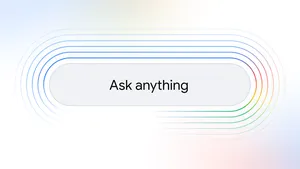The rise and fall and rise again of “now more than ever”

One of my favorite Google tools is the Google Books Ngram Viewer, or “Ngrams.” Originally created in 2009 by part of the Google Books team, Ngrams shows how books and other pieces of literature have used certain words or phrases over time. You can chart the rise (and fall) of colloquialisms like “sockdollager” or “take the egg”—or even “that slaps.”
“Ngrams simply aggregates the use of words or phrases across the entire Google Books dataset,” says Michael Ballbach, a software engineer who works on Google Books. “It then allows users to graph the usage of those words or phrases through time.” Each word being searched is a “gram” that the tool searches across its database.
Ngrams’s capabilities have grown recently, thanks to an update in 2019 that added approximately 19 million more books to its dataset. “For the English language corpus, that adds trillions of words,” Michael says. For context, that’s roughly the equivalent of three million copies of “War and Peace!”
But there’s one phrase—er, four grams—that’s been surfacing more and more during these...challenging, unprecedented, uncertain, unusual times that I’m particularly interested in: “Now more than ever.”
Perhaps you’ve even noticed it? “Now more than ever” has invaded our vernacular; in fact, I’m sure you’ve read it (or a similar phrase) in a Keyword post or two. So I decided to dive into Ngrams to see if “now more than ever” is showing up...now more than ever. While we’re currently experiencing a spike, there have been others: In the early 1940s, around 1915-1920 and in 1866. Between 1805-1809 it was particularly high—nearly as high as it is today.
And then of course there was the banner year of 1752, when things peaked for “now more than ever.”

Today, as we’re living through a pandemic, wildfires, racial injustice and so, so much more, it feels obvious why we’re increasingly saying and hearing “now more than ever,” but what about back then? What things made people feel like everything had a certain crucialness?
While the Ngrams team doesn’t investigate the causes of the booms and busts of words and phrases, for this particular exercise, I thought a little about what could have possibly been happening during these periods of “now more than ever.” I can imagine in the 1940s, World War II changed the lives of people everwhere. 1915-1920 was marked by World War I—and of course, the influenza pandemic of 1918. In 1866, the United States was emerging from civil war. 1805 to 1809 was a heady time for the young U.S. government.
“If you have the time or inclination, you can use Books Search to try and get some insights,” Michael explains. So I plugged in “now more than ever,” searched under Books, and toggled the time settings for 1751 to 1753 to try and see if I could glean anything about the peak year of 1752. And while I can’t say I know what about that time really pushed the “now more than everness,” a handful of British literary journals were definitely using the phrase.
But things don’t stay at a “now more than ever” pitch. From 1955 to 1996, “now more than ever” was relatively uncommon, before climbing steeply up through the late 90s and early aughts to today.
Maybe you, like me, may find some comfort in knowing that this moment in time—as unprecedented, challenging and uncertain as it may be—is not the only one in which everything is “now more than ever.” Maybe you, too, can appreciate the light Ngrams sheds on the lives of the words we choose.
“I think that language is evolving just like society is evolving. That is, language is a reflection of the society that used it, and vice versa,” Michael says. “How the use of language changes over time reflects at least some of the changes taking place in the wider world. Having better tools to look at one can hopefully lead to insights in the other.”
And if you’re feeling very “now more than ever,” just remember: This too shall pass.






